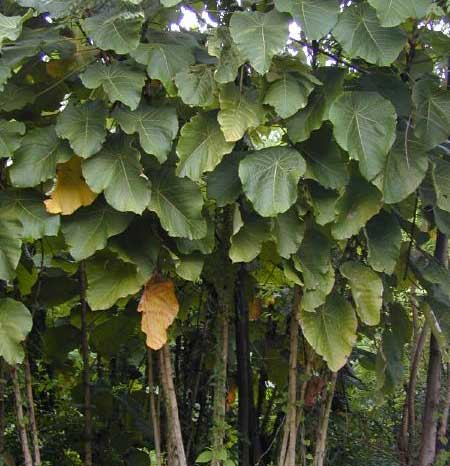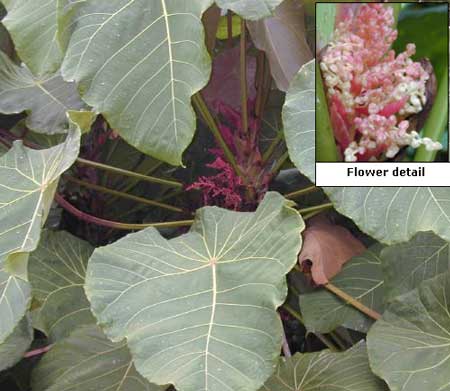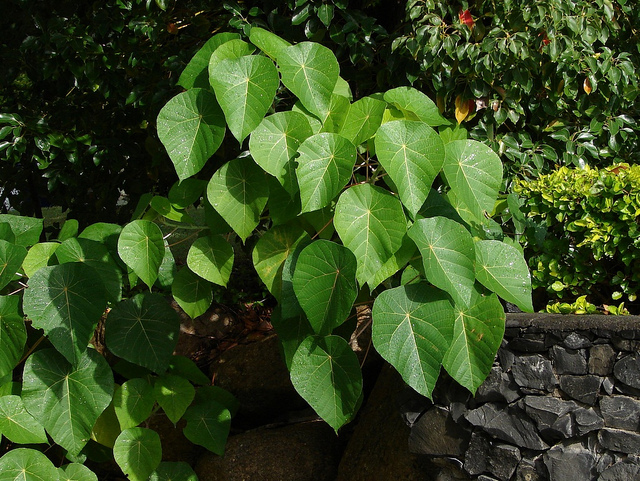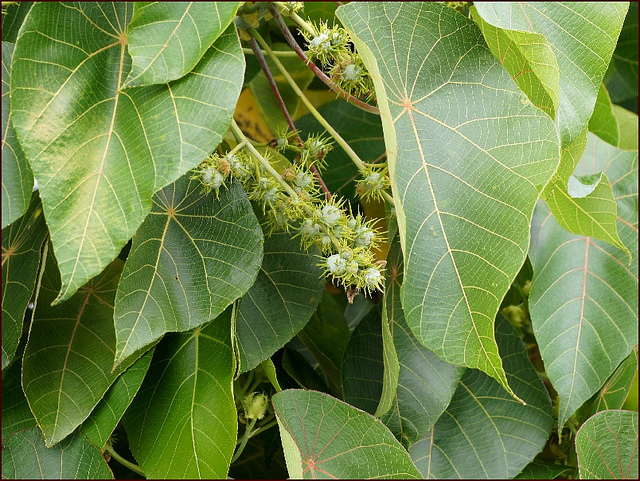Bingabing
Bingabing (Macaranga mappa)


Hawai‘i-Pacific Weed Risk Assessment Score: 12.High Risk Visit the Plant Pono HPWRA page for more info
Regulatory Status: None
Prevention and Control Category: KISC Target Species
Report this species if seen on Kauai
Description
This distinctive small tree has columnar stems and huge umbrella like leaves. It can grow from 5 – 10 m (15 – 30 ft) tall with round leaves 60 – 100 mm (1 – 4 in) long. Stem attached to the middle of the leaf, rather than the edge. Pink, petal-less flowers form in clusters near the base of the leaf stalk. Young plants may superficially resemble Hawaiian taro (Colocasia esculenta).
Impacts
On the island of Hawai’i, bingabing was seeded from airplanes along with many other weedy forestry species near Hilo after a fire. Today, it lines roadsides, gulches, and disturbed forests in the vicinity. Its large leaf structure creates a dense growth that can crowd and shade out other vegetation.
Distribution
Bingabing is only found on Oʻahu and the island of Hawaiʻi.
What you can do
If you see this species on Kauai, call 643-PEST and/or visit 643pest.org.
Look-alike Species


Macaranga tanarious: This relative of bingabing is another invasive pest that has already escaped into the wild on Oahu, Maui, and Kauaʻi. It can be distinguished from bingabing by its smaller leaves (60-100 cm or 24-40 in) and pale green to yellowish green calyx (tough outer petals that protect the bud before it opens).
Image Attributions: Macaranga mappa images- Forest & Kim Starr; Macaranga tanarius images- Tatters (Flickr)

